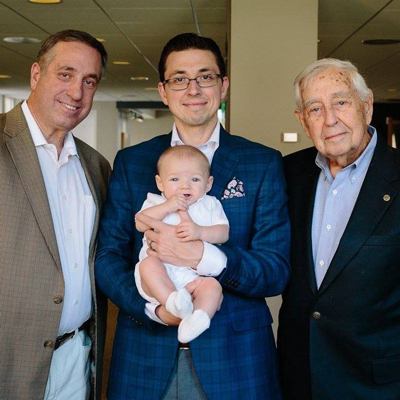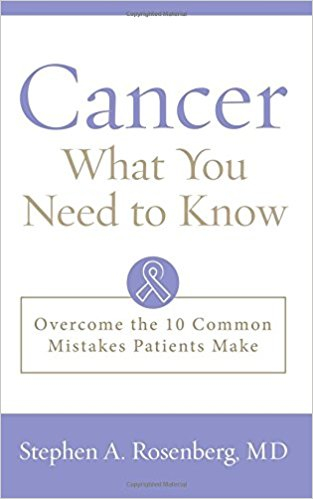Rutgers Alumnus Pens Book to Guide Cancer Patients and Caregivers
Radiation oncologist trades academic approach for plain-spoken one in "Cancer: What You Need to Know"

“I’m hoping this will lead to better quality of care for patients. They can better advocate for themselves when they understand their cancer and their treatment.”– Stephen Rosenberg, Radiation oncologist and Rutgers alumnus
Radiation oncologist and Rutgers alumnus Stephen Rosenberg has written dozens of scholarly papers to advance cancer treatment.
His academic credits include titles such as “Targeting Glutamatergic signaling and the PI3 Kinase pathway to halt melanoma progression,” and “Long-term patterns of relapse and survival following definitive intensity-modulated radiotherapy for non-endemic nasopharyngeal carcinoma.”
But it’s his simple self-help book, Cancer: What You Need To Know, written at an eighth-grade level that Rosenberg thinks has the potential to improve care for more patients.
The radiation oncology chief resident at the University of Wisconsin Hospital and Clinics in Madison was inspired to pen the book after guiding his own father through his successful battle with colon cancer in 2016.
“I was there to translate what the doctors were saying in layman’s terms,” said Rosenberg, who earned his master’s in clinical and translational science from Rutgers Graduate School of Biomedical Sciences (now the School of Graduate Studies) and his doctorate from Rutgers Robert Wood Johnson Medical School. “But not everyone has an oncologist in the family to do that.”
Unlike any of Rosenberg’s previous papers, the self-published work is written not for physicians but for patients and caregivers trying to process a confusing cancer diagnosis and navigate the maze of treatment options. Since coming out Nov. 6, the book has topped Amazon’s new releases in the health-risk assessment category.
“I’m hoping this will lead to better quality of care for patients,” said Rosenberg, who was raised in Medford. “They can better advocate for themselves when they understand their cancer and their treatment.”
Rosenberg’s decision to focus on radiation oncology at Rutgers was fueled by his mentors, James Goydos, professor of surgical oncology, and Bruce Haffty, chair of radiation oncology, who encouraged him to take a year off from medical school to pursue a research year. His research was funded through a fellowship from the Howard Hughes Medical Institute. The experience researching exciting, new cancer treatments and time spent making connections with patients drew him in.

Typically physicians in radiation oncology get to spend an hour with patients during an initial consultation, he said, answering questions and explaining test results and procedures. But digesting all that information – especially during an emotionally and physically exhausting time – can be difficult. Rosenberg envisions his book bridging the gap between doctor appointments, as questions or concerns arise for patients and caregivers.
In preparation for writing his book, Rosenberg said he was surprised to find few books about cancer that were both accurate and accessible to broad audiences. Going through cancer is hard enough, he said, reading a book about that journey shouldn’t have to be.
“I put a lot of thought and energy into what to include and how to write it and orient words on the page,” said Rosenberg, who broke down chapters into brief subchapters and took pains to keep sentences short and to the point. “What I didn’t want was for people to open a book with walls of text on a page. I wanted to make the text as approachable as I could.”
In it he outlines the top 10 mistakes patients make upon receiving a diagnosis involving cancer, including putting off discussions about palliative care.
“People think if you go down the path of palliative care that means giving up,” he said of palliative care treatment. “In fact, early involvement in palliative care has been shown to improve outcomes and quality of life.”
Rosenberg is using the proceeds of the $9.99 book to purchase more for distribution in cancer clinics.
“My goal here is to get this information into the hands of as many people as possible,” he said, “so that they are a little better armed to have these conversations with their doctors and be their own advocates.”
For media inquiries, contact Lisa Intrabartola at 848-932-0554 or lintrabartola@ucm.rutgers.edu.